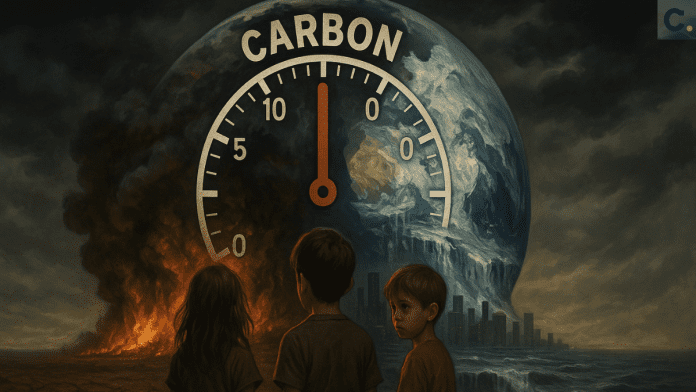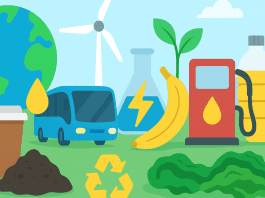Carbon limits are tightening as the Earth runs out of time to meet the 1.5°C global warming target. Scientists warn that the world’s carbon budget—the amount of carbon dioxide humanity can still emit—will be used up in just two years if emissions continue at the current pace.
Earth Nears the Breaking Point
This carbon budget is important because it shows how much carbon the planet can handle before global temperatures rise too much. Once we cross that line, it becomes almost impossible to stop more damage. In 2020, the carbon budget was larger. Now, only 80 billion tons of carbon dioxide can be emitted after 2025 to have a two-thirds chance of staying within 1.5°C of warming.
In 2024, the world hit a record high for emissions. That means we are moving in the wrong direction. At this pace, the budget will be gone by 2027. The average global temperature will then surpass the goal. Once that happens, the heat could stay high for many years.
This limit matters because the 1.5°C target is what most world leaders agreed on to avoid the worst effects of climate change. But that goal is now slipping out of reach.
Carbon Emissions Drive Weather Disasters
Rising carbon emissions from burning coal, oil, and gas are heating up the planet. The result is more extreme weather events. Communities are already suffering from stronger storms, longer droughts, and intense heatwaves.
The world has warmed by about 1.2°C already. For the first time in a single year, the average global temperature reached 1.5°C in 2024. Scientists warn that this is a clear signal of how fast the climate is changing.
Carbon emissions add invisible heat-trapping gases to the atmosphere. These gases work like a blanket around the planet, making it hotter over time. As the temperature rises, nature reacts. Rain becomes unpredictable. Forests burn more easily. Rivers dry up. Coastal cities flood more often.
Experts say the climate we are used to—stable seasons and steady rainfall—may never return if carbon emissions don’t fall quickly. And the problem doesn’t affect all people equally. Poor and vulnerable communities are facing the worst impacts, even though they’ve done the least to cause the problem.
Carbon Pollution Hurts Oceans and Melts Ice
Oceans are feeling the effects of carbon pollution too. Around 90% of the extra heat from global warming goes into the oceans. That causes sea levels to rise in two ways: by melting ice and by making water expand as it warms.
In the past 10 years, the speed of sea level rise has doubled. The seas are now rising by 4 millimeters every year. This is flooding low-lying areas, damaging homes, and forcing people to move. Some small island nations face the risk of disappearing completely.
Hino Motors’ Emissions Lies Cost $1.6 Billion in Penalties
Polar ice caps and glaciers are melting more quickly than before. The oceans get even more water as a result. Marine life is also disrupted by warmer oceans. Fish have a hard time surviving. Reefs of coral fade and perish. Communities that rely on fishing are losing their food and revenue source.
In 2024, ocean temperatures reached record highs across the globe. Warmer oceans fuel stronger storms and hurricanes. They also change ocean currents, which can shift rainfall patterns and cause more extreme weather in many parts of the world.
The Planet’s Heat is Out of Balance
Carbon buildup in the atmosphere is making the planet trap more heat than it releases. This is called an energy imbalance. Over the last decade, this imbalance has grown by 25%.
This trapped heat is causing serious changes. Glaciers are melting. Storms are getting worse. Rainfall is less predictable. Forests are drying out. All of this makes it harder for humans, animals, and plants to adapt.
The energy imbalance shows that the planet is out of balance because of carbon emissions. Even small increases in global temperature can have big effects. The changes are happening faster than ever before. That is why scientists say the carbon budget is not just a number—it is a warning sign.
If we continue releasing carbon at the current rate, things will get much worse. Every fraction of a degree matters. Every ton of carbon released brings us closer to more harm. The data clearly shows the world is not on track to meet the target. And the time to act is almost gone.




